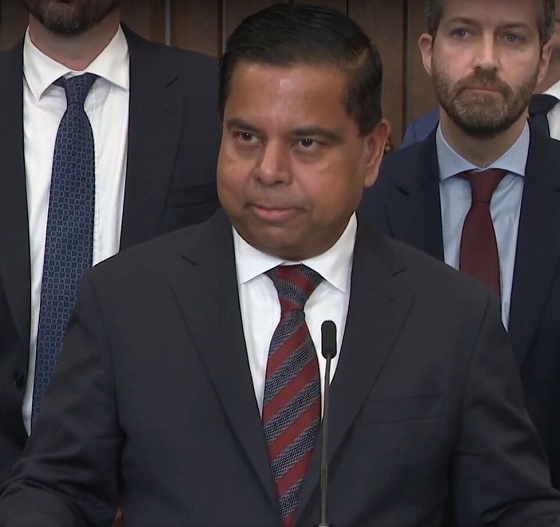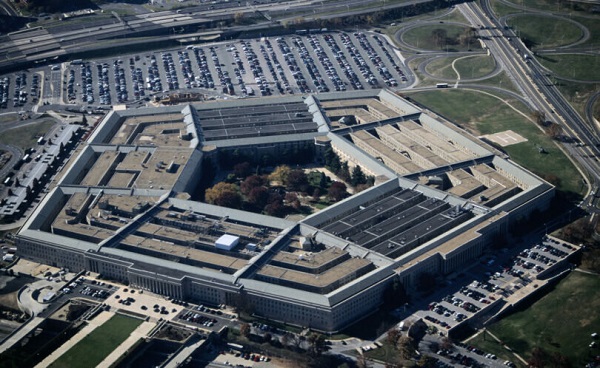Alberta
Meet Alberta’s first Anti-Racism Advisory Council

Meet Alberta’s first Anti-Racism Advisory Council
February 25, 2019 – from Government of Alberta:
Alberta’s first council dedicated to combating racism will bring expertise and experience to assist in government’s commitment to end racism.
The council includes 24 members plus Education Minister David Eggen, who is responsible for government’s anti-racism initiative. The council will advise government as it develops strategies to end racism and discrimination in Alberta. This council is the first of its kind in the province.
More than 300 Albertans applied to participate on the council. Members were selected for their demonstrated leadership abilities and experience in advocating for diverse communities. The council includes people from various faiths and other diversities, and members represent regions across the province.
“Establishing the Anti-Racism Advisory Council is an important part of our government’s efforts in fighting racism in this province. Each of the council’s new members brings a wealth of knowledge and lived experience to our government’s anti-racism work. I have a great deal of confidence in this new council and I look forward to working together to ensure all Albertans feel safe and respected. We will work together towards a common goal of ending racism in our province. We owe this to our future generations.”
Minister Eggen will have two co-chairs on the Anti-Racism Advisory Council: Heather Campbell and Lucenia Ortiz.
“I am extremely proud to share the leadership of the Alberta Anti-Racism Advisory Council (AARAC). Thank you, Minister Eggen, for entrusting me with this fundamental element of the government’s plan to address racism. All Albertans will benefit from AARAC’s inspired work developing community-based solutions to address racism and remove barriers, allowing everyone to thrive.”
“I am honoured to be selected as one of the co-chairs of the Alberta Anti-Racism Advisory Council. I look forward to working with the members of the Advisory Council who share a commitment to tackle racism and make Alberta a more welcoming and inclusive province.”
Council member biographies
Co-Chairs
Heather A. Campbell, Calgary
Campbell is a practising licensed professional engineer and procurement manager with the Alberta Electric System Operator. Campbell is a member of the advisory council for Western Engineering, sits as vice-president of the board of directors of Downstage Theatre and is a board member of Arts Commons.
Lucenia Ortiz, Edmonton
Ortiz is a planner with the City of Edmonton’s Citizen Services. Ortiz is a founding member of the Edmonton Multicultural Coalition and a member of the Multicultural Health Brokers Co-op.
Council Members
Shan Ali, Calgary
Ali is the owner and publisher of Express Media Network Ltd. where he launched Weekly Canadian Express, one of Western Canada’s largest South Asian newspapers, covering Calgary, Edmonton and Fort McMurray. Ali also publishes South Asian Xpress Magazine and hosts the Sangeet Studio Radio show. Ali is a board member for the Asian Heritage Foundation and the South Asian Canadian Seniors Society.
Sonia Aujla-Bhullar, Calgary
Aujla-Bhullar is a public school teacher in Calgary and a PhD candidate in the Werklund School of Education at the University of Calgary. Her current work centres on exploring multi-ethnic and multicultural community engagement within schools as part of present-day inclusive education measures. Her work with community organizations includes local and national initiatives within the Sikh community and she is a member of the South Asian Police Advisory Committee for the Calgary Police Service.
Melodie Bastien, Brocket
Bastien is the NorthStar parent connector at Opokaasin Early Intervention Society in Lethbridge. She provides one-on-one support, wraparound support services and cultural programming for families. Bastien participates in the Blackfoot Traditional way of life within the Blackfoot Confederacy.
Iman Bukhari, Calgary
Bukhari is a multimedia professional working as a planner in channel management for the City of Calgary. Bukhari is also an adjunct professor at Columbia College where she teaches human rights and diversity courses. She is the founder and CEO of the Canadian Cultural Mosaic Foundation.
Yic Camara, Edmonton
Camara is an integration and community liaison agent with Centre d’acceuil et d’etablissement of Northern Alberta, establishing and maintaining contact with French multicultural communities in Edmonton. Camara has been actively involved in the Guinean community and sits on the board of directors for Institut Guy-Lacombe de la Famille (Parent Link Centre) in Edmonton.
Nadine Eagle Child, Lethbridge
Eagle Child is a student counselor at Red Crow Community College. She is an executive member of the Apiistamiiks – White Buffalo Trail Blazers, a grassroots group fighting against racism, hate and discrimination in Southern Alberta. She has served as the co-chair of the Employment and Education subcommittee with the City of Lethbridge’s Interagency Group, and chair of the Student Success and Retention working group under the Iniskim Education Committee at the University of Lethbridge.
Michael Embaie, Calgary
Embaie is a practising, licensed immigration consultant and has volunteered with not-for-profit local, provincial, national and international organizations for over 25 years, including as president and board member of the Southern Alberta Heritage Language Association and as founding member and president of the African Community Association of Calgary.
Sithara Fernando, Fort McMurray
Fernando is a community-based environmental monitoring instructor at Keyano College. Fernando formerly served as the secretary and chair of the governance committee for the Pride Centre of Edmonton and the vice-chair of Some Other Solutions crisis prevention centre. Fernando is a registered professional forester and a mental health advocate.
Nahla Gomaa, Edmonton
Gomaa is an associate clinical professor, researcher and educator at the faculty of medicine and dentistry at the University of Alberta. Gomaa serves as the Interfaith Portfolio chair in the Edmonton Council of Muslim Communities, contributes to the city’s commemoration of Remembrance Day and organizes Islamic history month at city hall.
Adil Zaki Hasan, Edmonton
Hasan is the vice-president and chief operations officer at Hasco Development Corporation. Hasan is active in the community including as vice-president of civic engagement for the Alberta Muslim Public Affairs Council and board member for Al Mustafa Academy and Humanitarian Society.
Zahro Hassan, Edmonton
Hassan is a doctoral student at the University of Alberta. She has extensive community and youth development experience within several multiracial/multicultural immigrant communities in Toronto, Ottawa and Edmonton. Hassan is a board director at the Edmonton Social Planning Council and a former support staff for the Toronto District School Board Task Force on the Success of Students of Somali Descent.
Abdulghani Haymour, Edmonton
Haymour is a business manager who works closely with the Canadian Arab Friendship Association (CAFA) to assist community members in areas such as filing government documents, accessing government resources and facilitating events. Haymour attends CAFA board meetings as a guest member.
Bernadette Iahtail, Edmonton
Iahtail is co-founder and executive director of Creating Hope Society, a society founded for the survivors of the Sixties and Seventies Scoop of Indigenous children in care. Iahtail is an active member of the Edmonton Coalition for Human Rights, Aboriginal coalitions, the Edmonton Aboriginal Leadership Team and Stony Plain Wapekin Leadership Team.
Adebayo Katiiti. Edmonton
Katiiti is the founder and president of RARICAnow, an organization for all LGBTQ refugees in Canada. Katiiti advocates for the rights of refugees by creating awareness of their existence in Canada and ensuring that newcomers and refugees learn Canadian culture and get support in navigating the refugee and settlement process.
Feisal Kirumira, Edmonton
Kirumira is special advisor to the dean of international students at Augustana campus, University of Alberta. Kirumira chairs the International Student Engagement Committee and participates on the Bridging Program Advisory Committee and the International Week planning committee.
Omar Najmeddine, Edmonton
Najmeddine is the executive director of the Al Rashid Group and leads all corporate functions for the organization. He is a board member with the American University of Beirut Alumni Foundation and a former board member with the Red Cross, and Community Interest Companies Association.
Roy Pogorzelski, Lethbridge
Pogorzelski is the director of Indigenous Student Affairs, an instructor for the Dhillon School of Business at the University of Lethbridge and owner and operator of three business. Pogorzelski is a member of the U of L senate, board member with the YMCA of Lethbridge, president of the Rotary Club of Lethbridge Mosaic and board member of the chamber of commerce. Pogorzelski is also an appointed director for the Canadian Race Relations Foundation (CRRF) and sits as the CRRF advisor to the National Canadian Coalition of Municipalities Against Racism and Discrimination committee.
Tasneem Rahim, Calgary
Rahim is the director of fund development and alumni engagement at Bow Valley College. Rahim serves as a member and manages community relations on the Aga Khan Council for the Prairies, and is the communications member of the Management Committee for Generations: Multi-Generational Housing and Community Centre Campus Calgary.
Judy Shapiro, Calgary
Shapiro is the former associate executive director of the Calgary Jewish Federation, overseeing all of its programming areas. She is a member of the Calgary Interfaith Council and a regular volunteer at the Calgary Interfaith Food Bank. Shapiro is a past board member for the Calgary Council of Christians and Jews and the Committee on Race Relations and Cross-Cultural Understanding.
Pavit Sidhu, Calgary
Sidhu is the WiseGuyz program facilitator and sexual health educator at the Centre for Sexuality in Calgary. Sidhu served as a member of the University of Calgary senate in 2013 and as an appointee of the students’ union representing the undergraduate student body.
Delainah Velichka, Worsley
Velichka is a school board trustee with Peace River School Division No. 10. Velichka’s portfolios include Administrators’ Association, Teacher Board Advisory Committee, Transportation Liaison Committee, Audit Committee, Alberta School Boards Association Second Language Task Force, Clear Hills Trades Training, Council of School Councils Liaison Committee, Discipline Committee and the First Nations, Métis & Inuit Liaison Committee.
Teresa Woo-Paw, Calgary
Woo-Paw is owner and principle of Teresa Woo-Paw & Associates Ltd. Woo-Paw is a member of the board of directors for the Calgary Arts Foundation, board president of Action Chinese Canadians Together Foundation and is a founding member and current co-chair of the Asian Heritage Foundation.
Alberta
Alberta Premier Danielle Smith Discusses Moving Energy Forward at the Global Energy Show in Calgary

From Energy Now
At the energy conference in Calgary, Alberta Premier Danielle Smith pressed the case for building infrastructure to move provincial products to international markets, via a transportation and energy corridor to British Columbia.
“The anchor tenant for this corridor must be a 42-inch pipeline, moving one million incremental barrels of oil to those global markets. And we can’t stop there,” she told the audience.
The premier reiterated her support for new pipelines north to Grays Bay in Nunavut, east to Churchill, Man., and potentially a new version of Energy East.
The discussion comes as Prime Minister Mark Carney and his government are assembling a list of major projects of national interest to fast-track for approval.
Carney has also pledged to establish a major project review office that would issue decisions within two years, instead of five.
Alberta
Punishing Alberta Oil Production: The Divisive Effect of Policies For Carney’s “Decarbonized Oil”

From Energy Now
By Ron Wallace
The federal government has doubled down on its commitment to “responsibly produced oil and gas”. These terms are apparently carefully crafted to maintain federal policies for Net Zero. These policies include a Canadian emissions cap, tanker bans and a clean electricity mandate.
Following meetings in Saskatoon in early June between Prime Minister Mark Carney and Canadian provincial and territorial leaders, the federal government expressed renewed interest in the completion of new oil pipelines to reduce reliance on oil exports to the USA while providing better access to foreign markets. However Carney, while suggesting that there is “real potential” for such projects nonetheless qualified that support as being limited to projects that would “decarbonize” Canadian oil, apparently those that would employ carbon capture technologies. While the meeting did not result in a final list of potential projects, Alberta Premier Danielle Smith said that this approach would constitute a “grand bargain” whereby new pipelines to increase oil exports could help fund decarbonization efforts. But is that true and what are the implications for the Albertan and Canadian economies?
The federal government has doubled down on its commitment to “responsibly produced oil and gas”. These terms are apparently carefully crafted to maintain federal policies for Net Zero. These policies include a Canadian emissions cap, tanker bans and a clean electricity mandate. Many would consider that Canadians, especially Albertans, should be wary of these largely undefined announcements in which Ottawa proposes solely to determine projects that are “in the national interest.”
The federal government has tabled legislation designed to address these challenges with Bill C-5: An Act to enact the Free Trade and Labour Mobility Act and the Building Canada Act (the One Canadian Economy Act). Rather than replacing controversial, and challenged, legislation like the Impact Assessment Act, the Carney government proposes to add more legislation designed to accelerate and streamline regulatory approvals for energy and infrastructure projects. However, only those projects that Ottawa designates as being in the national interest would be approved. While clearer, shorter regulatory timelines and the restoration of the Major Projects Office are also proposed, Bill C-5 is to be superimposed over a crippling regulatory base.
It remains to be seen if this attempt will restore a much-diminished Canadian Can-Do spirit for economic development by encouraging much-needed, indeed essential interprovincial teamwork across shared jurisdictions. While the Act’s proposed single approval process could provide for expedited review timelines, a complex web of regulatory processes will remain in place requiring much enhanced interagency and interprovincial coordination. Given Canada’s much-diminished record for regulatory and policy clarity will this legislation be enough to persuade the corporate and international capital community to consider Canada as a prime investment destination?
As with all complex matters the devil always lurks in the details. Notably, these federal initiatives arrive at a time when the Carney government is facing ever-more pressing geopolitical, energy security and economic concerns. The Organization for Economic Co-operation and Development predicts that Canada’s economy will grow by a dismal one per cent in 2025 and 1.1 per cent in 2026 – this at a time when the global economy is predicted to grow by 2.9 per cent.
It should come as no surprise that Carney’s recent musing about the “real potential” for decarbonized oil pipelines have sparked debate. The undefined term “decarbonized”, is clearly aimed directly at western Canadian oil production as part of Ottawa’s broader strategy to achieve national emissions commitments using costly carbon capture and storage (CCS) projects whose economic viability at scale has been questioned. What might this mean for western Canadian oil producers?
The Alberta Oil sands presently account for about 58% of Canada’s total oil output. Data from December 2023 show Alberta producing a record 4.53 million barrels per day (MMb/d) as major oil export pipelines including Trans Mountain, Keystone and the Enbridge Mainline operate at high levels of capacity. Meanwhile, in 2023 eastern Canada imported on average about 490,000 barrels of crude oil per day (bpd) at a cost estimated at CAD $19.5 billion. These seaborne shipments to major refineries (like New Brunswick’s Irving Refinery in Saint John) rely on imported oil by tanker with crude oil deliveries to New Brunswick averaging around 263,000 barrels per day. In 2023 the estimated total cost to Canada for imported crude oil was $19.5 billion with oil imports arriving from the United States (72.4%), Nigeria (12.9%), and Saudi Arabia (10.7%). Since 1988, marine terminals along the St. Lawrence have seen imports of foreign oil valued at more than $228 billion while the Irving Oil refinery imported $136 billion from 1988 to 2020.
What are the policy and cost implication of Carney’s call for the “decarbonization” of western Canadian produced, oil? It implies that western Canadian “decarbonized” oil would have to be produced and transported to competitive world markets under a material regulatory and financial burden. Meanwhile, eastern Canadian refiners would be allowed to import oil from the USA and offshore jurisdictions free from any comparable regulatory burdens. This policy would penalize, and makes less competitive, Canadian producers while rewarding offshore sources. A federal regulatory requirement to decarbonize western Canadian crude oil production without imposing similar restrictions on imported oil would render the One Canadian Economy Act moot and create two market realities in Canada – one that favours imports and that discourages, or at very least threatens the competitiveness of, Canadian oil export production.
Ron Wallace is a former Member of the National Energy Board.
-

 International11 hours ago
International11 hours agoIsrael’s Decapitation Strike on Iran Reverberates Across Global Flashpoints
-

 Business21 hours ago
Business21 hours agoTrump: ‘Changes are coming’ to aggressive immigration policy after business complaints
-

 Business1 day ago
Business1 day agoThe carbon tax’s last stand – and what comes after
-

 Business2 days ago
Business2 days agoJustice Centre launches new petition: Keep cash legal and accessible. Stop Bill C-2
-

 illegal immigration20 hours ago
illegal immigration20 hours agoLA protests continue as judge pulls back CA National Guard ahead of ‘No Kings Day’
-

 International1 day ago
International1 day agoPentagon agency to simulate lockdowns, mass vaccinations, public compliance messaging
-

 National1 day ago
National1 day agoCarney promotes MP instrumental in freezing Freedom Convoy donors’ bank accounts
-

 Business2 days ago
Business2 days agoAudit report reveals Canada’s controversial COVID travel app violated multiple rules







